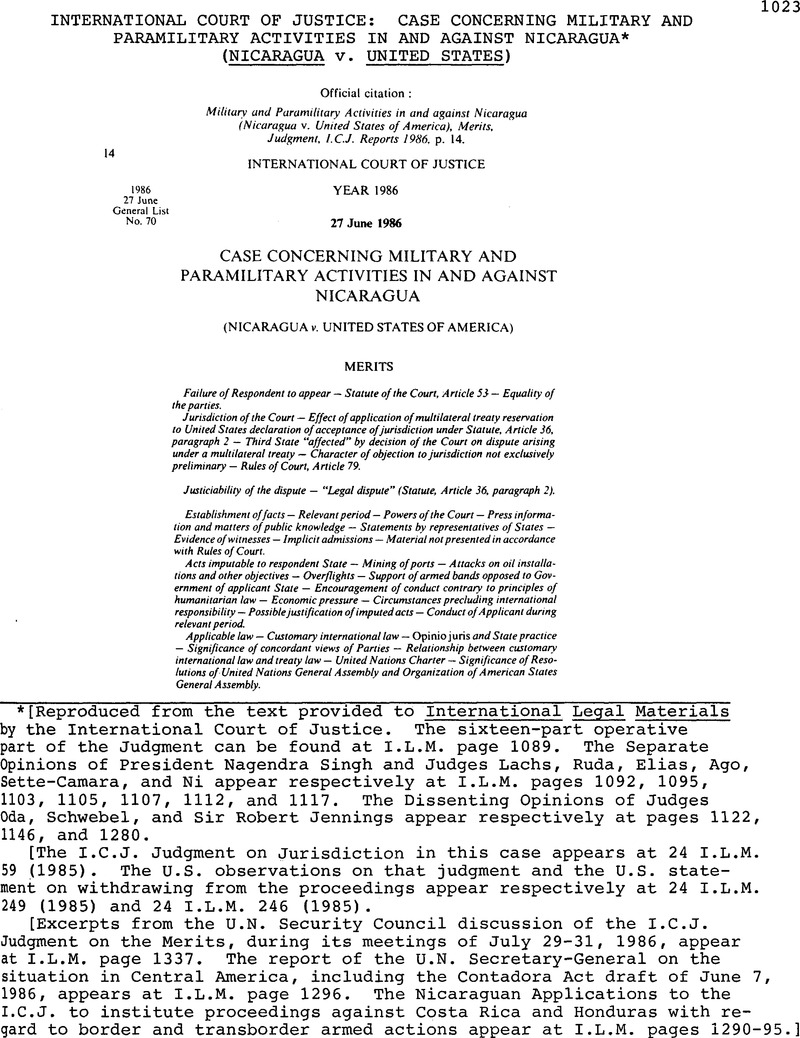Published online by Cambridge University Press: 18 May 2017

[Reproduced from the text provided to International Legal Materials by the International Court of Justice. The sixteen-part operative part of the Judgment can be found at I.L.M. page 1089. The Separate Opinions of President Nagendra Singh and Judges Lachs, Ruda, Elias, Ago, Sette-Camara, and Ni appear respectively at I.L.M. pages 1092, 1095,1103, 1105, 1107, 1112, and 1117. The Dissenting Opinions of Judges Oda, Schwebel, and Sir Robert Jennings appear respectively at pages 1122,1146, and 1280.
[The I.C.J. Judgment on Jurisdiction in this case appears at 24 I.L.M.59 (1985). The U.S. observations on that judgment and the U.S. statement on withdrawing from the proceedings appear respectively at 24 I.L.M.249 (1985) and 24 I.L.M. 246 (1985).
[Excerpts from the U.N. Security Council discussion of the I.C.J.Judgment on the Merits, during its meetings of July 29-31, 1986, appear at I.L.M. page 1337. The report of the U.N. Secretary-General on the susituation in Central America, including the Contadora Act draft of June 7, 1986, appears at I.L.M. page 1296. The Nicaraguan Applications to the I.C.J, to institute proceedings against Costa Rica and Honduras with regard to border and transborder armed actions appear at I.L.M. pages 1290-95.]
1 It may be objected that the very term “self-defence” is a common law notion, and that, for instance, the French equivalent of “legitime defense” does not mention “self”. Here, however, the French version is for once, merely unhelpful; it does no more than beg the question of what is “legitime”.